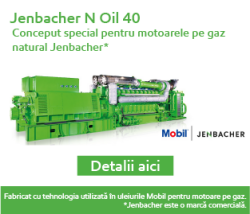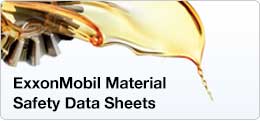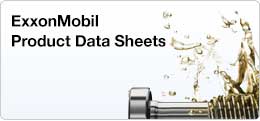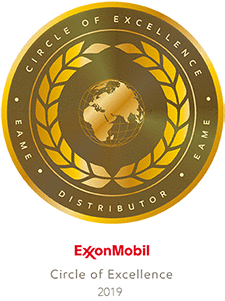6 frequently asked questions about Mobil Industrial Lubricants for the manufacturing sector (plastics)
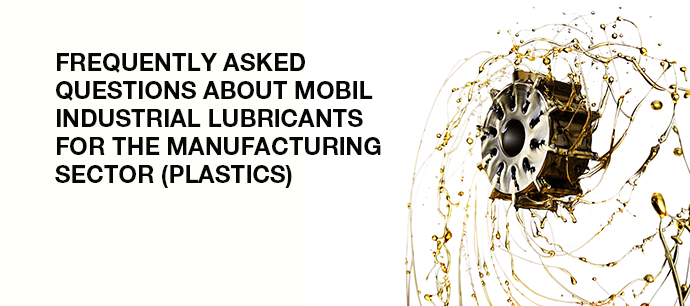 6 frequently asked questions about Mobil Industrial Lubricants for the manufacturing sector (plastics)
6 frequently asked questions about Mobil Industrial Lubricants for the manufacturing sector (plastics)
Over the last few years, the competitive environment in which plants from manufacturing sectors operate has shifted significantly. Consequently, companies are searching for cost reductions in every single part of their business. An important role in this process is given by the lubricants used in plastic injection moulding machines.
Discover below the most common 6 questions our experts in the industry receive from plant owners who want to reduce their operating costs and increase the employee’s safety.
1. How can we look to maximize productivity if the plastic injection machinery is operating 24/7?
Maximizing productivity can be achieved in several ways, such as decreasing cycle times and extending equipment life. When considering cycle time and energy efficiency, a system having both mechanical and volumetric efficiencies at optimum levels would decrease cycle time while saving energy. For example, using an oil such as Mobil DTE 10 Excel in a plastic injection moulding application can help to reduce cycle times, with a 0.5 second improvement in cycle time having the potential to increase productivity by 11 percent.
2. Will using high quality lubricants help increase productivity or should they only be used in newer equipment?
Both old and new equipment may benefit from high quality lubricants distributed by Star Lubricants. Of course that an old machinery will not have the same performance as a new one, but tests conducted by Exxon Mobil showed that using Mobil DTE 10 Excel hydraulic oil can maintain the reliability of hydraulic systems for longer. Mobil DTE 10 Excel Series hydraulic oil is specially designed for new equipment of the latest generation.
3. Hydraulic oil is currently leaking from one of our plastic injection moulding machines. How can I address this?
The problem of hydraulic oil leakage is very common in all kinds of systems due to the shrinking or swelling phenomenon caused by a number of issues, including the incompatibility of the seal with the lubricant, mechanical misalignment, seal failures under high pressure, high temperature and/or high speed conditions.
High leakage rates result in higher lubrication costs, health and safety issues (slippery surfaces) and may lead to increased unscheduled downtime. In order to minimize leakage levels we recommend to use a shear-stable, high viscosity index lubricant that has universal compatibility with a wide range of seals. For example, Mobil DTE 10 Excel’s high viscosity index level provides optimum viscosity in high ambient temperatures when leakages are more likely to occur.
4. Should I use different hydraulic oils depending on the season?
Using different viscosities to suit the weather conditions is a very common and established practice across many industrial sectors. However, this practice does result in production loss due to the scheduled downtime needed to change the oil, increased oil consumption and increased volumes of waste oil.
To reduce the times that your equipment does not work, Star Lubricants recommends using the new generation of lubricants for hydraulic equipment such as Mobil DTE 10 Excel. This lubricant provides a high viscosity index, which makes it suitable for all seasons.
5. How to maintain industrial equipment cleaner for longer?
Very simple. By using the lubricants and greases which contain additives that contribute to increased wear protection. The industrial lubricants distributed by Star Lubricants have special additive formulations which provide an equally robust protective film but do not have any of the sludge issues associated with zinc – therefore ensuring a cleaner system.
6. How can cold start affects the industrial equipment?
As well as consuming considerably more energy than at any other time of the cycle, a cold start is also the cause of most pump failures. To overcome this problem, Mobil DTE 10 Excel hydraulic lubricant was designed to preserve the properties even at temperatures of only 8 ° C, less than other conventional products for industrial hydraulic equipment. Mobil DTE 10 Excel has been designed to perform in extreme environments, with some grades operating successfully in temperatures as low as -34°C as well as offering excellent „start-up‟ protection.
The efficiency with running your industrial equipment, regardless of the industry sector, will have a substantial contribution to the productivity of your company. Using the new generation of hydraulic lubricants for industrial equipment will get you substantial savings on your operating costs.




